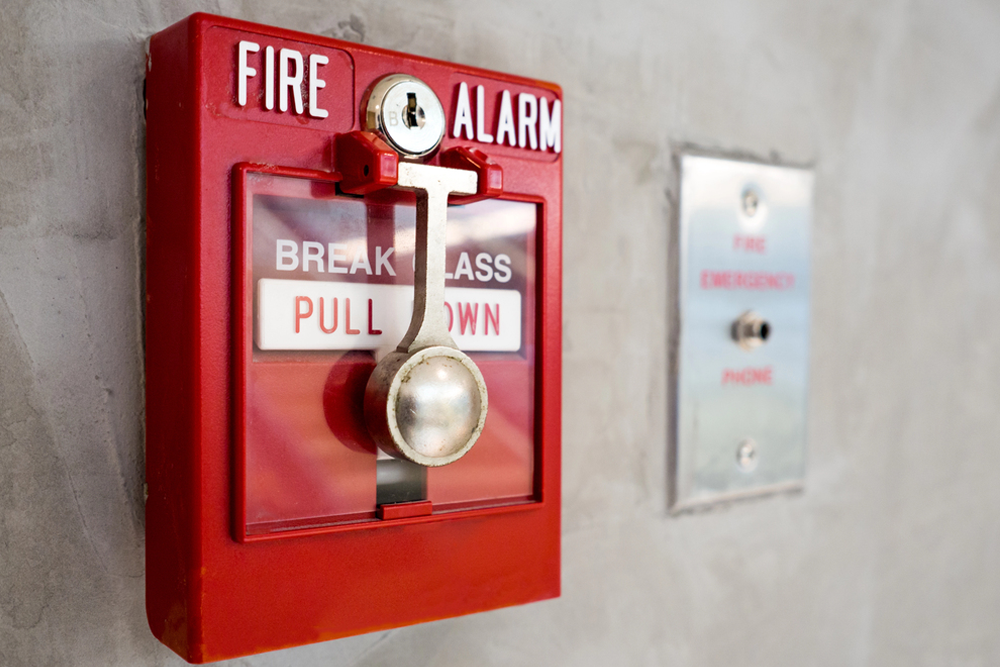 11
Dec
11
Dec
How Does Fire Alarm Monitoring Work?
- 0 Comment(s)
- December 11, 2024
Imagine this: You are at home, asleep, and suddenly the smoke alarm activates. It is loud, disruptive, and abruptly wakes you. However, what happens if no one is present to hear it? This is where fire alarm monitoring becomes necessary. It acts as a safeguard and makes sure that emergency services are alerted, even when no one is around. In this article, we will examine how fire alarm monitoring functions and why it is an indispensable solution for both residential and commercial properties.
What Exactly Is Fire Alarm Monitoring?
You are likely familiar with smoke detectors and may assume that they provide adequate protection. However, a standalone alarm may not offer sufficient coverage. Fire alarm monitoring adds a necessary layer of security. Rather than merely sounding an alarm that may only alert nearby individuals, it connects your system to a central monitoring station.
When the alarm detects smoke or heat, it not only activates an audible signal but also transmits a notification to a dedicated team. This team takes immediate action by notifying the fire department and making sure that assistance is dispatched promptly.
How Fire Alarm Monitoring Works Behind the Scenes
Fire alarm monitoring is a highly efficient process. When your fire alarm detects a potential hazard, such as smoke or a sudden increase in temperature, it sends a signal. This signal is transmitted to a monitoring center through several possible methods, including phone lines, the internet, or cellular networks.
Once the signal reaches the monitoring center, a trained professional evaluates the situation and swiftly contacts the appropriate emergency services. This process functions as an effective communication system. It guarantees that emergency responders are alerted without delay, ultimately saving lives.
The Different Types of Monitoring Systems
Not all fire alarm monitoring systems are the same. Some systems rely on landline connections, which are suitable for areas with stable phone networks. However, these systems may become ineffective if the phone line is cut. Consequently, many systems are transitioning to cellular or internet-based monitoring options, which are generally faster and more reliable.
Cellular monitoring, for instance, does not rely on physical wiring. Thus, it’s less vulnerable to outages. Similarly, internet-based monitoring can offer comparable benefits, though it is dependent on local network connectivity. The appropriate system should be selected based on the specific needs of the property, as no alternative method, such as shouting “fire,” will suffice.
Why Fire Alarm Monitoring is a Must-Have for Businesses
While having an alarm system in place is better than having no system at all, fire alarm monitoring enhances an already effective safety plan. As a business owner, it is not always possible to be present to respond to an emergency.
Consider scenarios such as an office being empty at night or a restaurant closed for the evening—fires do not adhere to business hours. Fire alarm monitoring guarantees that someone is always vigilant, even when you are not. The quicker emergency services can be alerted, the less damage occurs, and more importantly, the fewer people are at risk of harm.
In addition to protecting lives, failure to install a monitored fire alarm system may result in significant legal consequences. Many local regulations mandate that certain businesses install monitored fire alarm systems. Non-compliance may lead to substantial fines. This makes fire alarm monitoring not only a prudent measure but also a legal requirement in many cases.
The Role of Fire Alarm Maintenance
The efficacy of fire alarm monitoring is contingent upon the proper functioning of the alarm system. Regular fire alarm maintenance is necessary to make sure that the system operates optimally.
Components such as smoke detectors, control panels, and alarm signals require routine inspections. Factors such as dust accumulation, battery depletion, or loose connections can compromise the system’s performance. If the system is not functioning correctly, the monitoring service will not receive the necessary signals during an emergency.
A professional technician will conduct comprehensive inspections and tests on all components of the alarm system. This includes confirming that detectors are unobstructed, batteries are fully charged, and signals are transmitted accurately to the monitoring center. By maintaining the system, you can make sure that when a fire emergency arises, the monitoring team can act promptly.
Getting Notified and What Happens Next
When the alarm is triggered, the process unfolds as follows: first, the alarm emits a loud sound, which may startle those nearby. Simultaneously, the system sends a signal to the monitoring center. The monitoring staff then assesses the situation and attempts to contact the property owner to verify whether it is a legitimate emergency or a false alarm.
If the staff is unable to reach the property owner or if the emergency is confirmed, they immediately contact the local fire department. This coordinated response guarantees that while you are managing the fire or evacuating, emergency services are already on their way.
Fire Alarm Monitoring at Home vs. Businesses
Fire alarm monitoring is equally important for residential properties as it is for businesses. In a residential setting, monitored alarms provide an added layer of security, particularly for families with elderly members or children. The process remains the same: the system detects a potential hazard, sends a signal, and the monitoring center initiates an appropriate response.
However, for businesses, the stakes are considerably higher. In addition to safeguarding employees, there are also customers, expensive equipment, and valuable inventory to protect. A missed alarm could result in significant financial losses or, in the worst-case scenario, the destruction of critical assets. A monitored system brings business owners the peace of mind that every precaution is being taken to mitigate risks.
Common Myths About Fire Alarm Monitoring
There are several misconceptions regarding fire alarm monitoring. Some individuals believe that it is expensive, complicated, or only necessary for large corporations. In reality, many monitoring services offer scalable solutions that are suitable for both small residential properties and large industrial facilities. The cost of fire alarm monitoring is often more affordable than anticipated, especially when compared to the potential financial consequences of fire damage without a monitored system.
Another misconception is that monitored systems are unreliable, particularly during power outages. However, modern systems are equipped with battery backups, cellular connections, and other fail-safes. The technology is highly reliable, and most issues arise due to insufficient maintenance.
Fire Alarm Maintenance You Can Count On – Yadkin Fire & Safety
Fire alarm monitoring operates effectively behind the scenes to protect your home or business, but it is only successful if the system is well-maintained. Yadkin Fire & Safety has provided expert fire alarm maintenance services to the community for over 25 years.
Our team of skilled technicians makes sure that every component of your system is thoroughly inspected and maintained. From smoke detectors to control panels, we test each part of the system to guarantee that it will function correctly during an emergency. Let us take care of your fire safety needs, so you can focus on what matters most. Contact Yadkin Fire & Safety today at (336) 699-4370 to learn more about our services.

